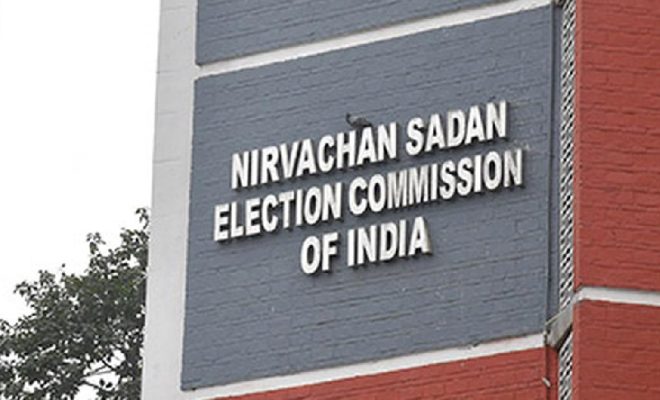Insights int Political Funding & Implications of Electoral Bond Data in India

In the latest Electoral Bond data released by the Election Commission of India, significant insights into the realm of political financing have come to light. Notably, the Bharatiya Janata Party (BJP) emerges as the primary recipient, with its top 10 donors constituting a substantial portion of its electoral bond kitty. These donors, comprising only a fraction of the total contributors, account for a staggering 35% of the BJP’s Rs 6,000-crore electoral bond kitty. This revelation underscores the intricate relationship between corporate donors and political parties, raising pertinent questions about transparency, accountability, and the influence of money in politics.
The release of the latest Electoral Bond data by the Election Commission of India (ECI) has sparked significant interest and scrutiny, shedding light on the intricate web of political financing in the country. With alpha numeric codes accompanying the details of purchasers and redeemers, there is now a tangible link between donors and recipients, enabling a more comprehensive analysis of the flow of funds in the political landscape.
The Significance of ₹1 Lakh Paid-up Capital Companies
One striking revelation from the Electoral Bond data is the involvement of 62 companies with a paid-up capital of ₹1 lakh, the minimum mandated under Indian laws. Typically associated with smaller enterprises, the presence of these companies in the realm of political donations raises questions about transparency, accountability, and the influence of money in politics. While larger corporations often dominate headlines, the inclusion of smaller entities underscores the need for comprehensive reforms in campaign financing laws to ensure a level playing field and mitigate the risk of undue influence.
Key Takeaways from the Matching of ECI and MCA Data
The meticulous matching of Electoral Bond data with the Ministry of Corporate Affairs (MCA) database by howindialives.com has provided valuable insights into the nexus between corporate entities and political parties. Of the 1,263 buyers analyzed, 771 companies have been successfully matched, covering a substantial portion of the total amount purchased. This alignment allows for a deeper understanding of the flow of funds and the relationships between donors and recipients, painting a more comprehensive picture of the electoral financing landscape.
Donations from Top Firms and Political Beneficiaries
A closer examination of the data reveals a discernible pattern in the distribution of donations from top firms, many of which are under investigation by various agencies. The Bharatiya Janata Party (BJP) emerges as the primary beneficiary, receiving a significant portion of the funds, followed by other prominent parties such as the Trinamool Congress (TMC) and the Dravida Munnetra Kazhagam (DMK). This distribution underscores the complexities of political financing, with donations often mirroring broader socio-political dynamics and alliances.
Also Read | Yusuf Pathan launches Lok Sabha campaign in Berhampore, Adhir stronghold
Case Studies: Unpacking Corporate Donations
Several case studies highlight the intersection of corporate interests and political contributions, offering valuable insights into the motivations and implications of electoral funding. From Future Gaming and Hotel Services to Megha Engineering and Infrastructure Limited, these examples illustrate the diverse range of donors, recipients, and associated controversies. The allocation of funds to specific parties amid ongoing investigations raises pertinent questions about accountability, transparency, and the integrity of the electoral process.
The release of the Electoral Bond data catalyzes broader discussions around campaign finance reform in India. While the transparency measures implemented by the ECI represent a step in the right direction, there remain significant challenges in ensuring accountability and integrity in political financing. Addressing loopholes, strengthening regulatory mechanisms, and promoting greater transparency are essential steps in safeguarding the democratic process and enhancing public trust in electoral institutions.
The latest Electoral Bond data offers valuable insights into the intricacies of political financing in India, highlighting the nexus between corporate entities and political parties. By analyzing patterns, beneficiaries, and case studies, we gain a deeper understanding of the dynamics shaping electoral funding. Moving forward, concerted efforts toward reform are crucial in fostering transparency, accountability, and integrity in the electoral process.



